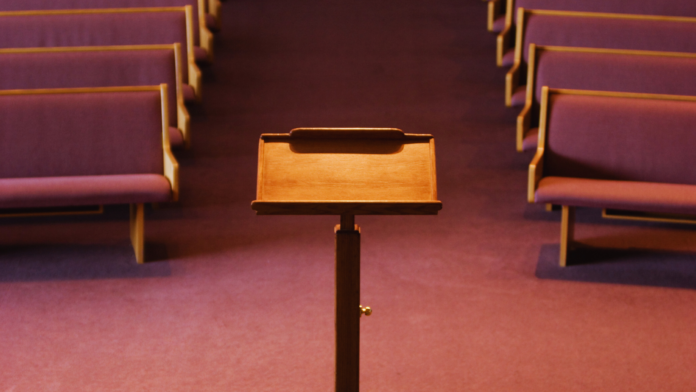“…you are lukewarm, neither hot nor cold…” (Revelation 3:16)
Mediocrity is a warm blanket.
Mediocrity is remaining with the bunch that finishes neither early or late, that turns in work much like everyone else’s, that is satisfied with pretty good.
Mediocrity is the head in the sand when the storm is raging around us.
Close your eyes until it all blows over.
Mediocrity is the coward’s way out when life-or-death decisions are being made. “Well, let’s give this some more thought.” “Let’s not be too hasty here.” “We don’t want people to think we’re extremists.”
There’s safety in mediocrity. We’re like everyone around us. We don’t stand out. No one criticizes us. They don’t even see us. We blend into the landscape.
Our English word mediocre comes from two Latin words, medi meaning “halfway,” and ocris meaning “mountain.” Somewhere there is a list of everyone climbing to the crest of Mount Everest. But no one ever bothered to note those who got half way up and turned around for home.
As a pastor, I’m tempted to criticize those who choose mediocrity rather than daring, who play safe and avoid risks. Yet I often live that way too. In my personal life and church leadership, I tend to choose the conservative, safe way. The outcome I fear is not so much failure as criticism. I’ve refrained from writing to the editor of a local paper on a controversial subject for fear of becoming the focus of criticism. My ego is too fragile. I’m confident I could not take it. Or, is the caution I feel actually maturity telling me not to squander hard-earned trust on some cause not worth the price? We’ve all seen foolhardy people who rush in where angels fear to tread, when they should have been quiet and stayed at home. Hard to know.
We want God to do a work in our midst, but we want Him to leave us alone. We desire seeing people saved and homes united, but not if it means God gets hold of us and insists on changing us. Work around us, Lord, we seem to say. Not in us and through us. Self-defense mechanisms are all working overtime. If we would be or do anything for the Master, we must face and overcome this gremlin.
Shamelessness, the antidote for mediocrity
“…and standing behind Him at His feet, weeping, she began to wet His feet with her tears, and kept wiping them with the hair of her head, and kissing His feet, and anointing them with the perfume…” (Luke 7:38)
So many people in Scripture demonstrated a wonderful shamelessness in Jesus’ presence.
–The men of Capernaum unroofed a house to get a friend into Jesus’ presence.
–The woman of Bethany wept openly in a hostile surrounding so intent was she on worshiping Jesus.
–The woman called Syro-phoenician would not take ‘no’ for an answer as she begged the Lord to help her child.
–The blind beggar of Jericho kept calling on Jesus when people tried to silence him, until the Lord heard and healed him.
–The tax collector of the same city climbed a tree to see the Lord, then publicly confessed his salvation in Jesus’ presence.
–Then, there was the blind man of John 9 who grew increasingly bold and fearless in his allegiance to his Lord.
–The women of Galilee followed Jesus, contributing to His support and remaining near the cross.
Just as remarkable, from our vantage point, is the number who pulled back from the Master lest they be embarrassed. Those who would not confess Him “for fear of the Jews.” Peter who denied Him in the high priest’s courtyard. The disciples who followed Him from afar. Joseph and Nicodemus who waited until it was safe to go public in their allegiance.
We can tell a lot about ourselves by what it takes to embarrass us. Paul says even to speak of what some do is shameful. Then he says, “I am not ashamed of the gospel of Christ.”
So many church members speak easily of forbidden practices, but “blush to speak His name.” Something is bad wrong. We should fear silence and shrink from disobedience.
We can choose to live another way
There is no spiritual pill we may take to end the problem of mediocrity. There is no one-prayer-solves-all for this malady. It’s an everyday thing, a work, a discipleship.
This involves choices I make day after day, from the moment my eyes open in the morning until I lay my head on the pillow at night.
It starts with acknowledging my shallowness, my love for convenience, my preference for the easy way out, my fear of criticism, my desire for easy answers and comfortable choices.
I will never completely conquer this, not in this lifetime. So, the prayer for faithfulness and the will to excel for Jesus’ sake must always be kept current.
Am I a soldier of the cross, a follower of the Lamb? And shall I fear to own His cause or blush to speak His name?
Must I be carried to the skies on flowery beds of ease? While others fought to win the prize and sailed through bloody seas?
Are there no foes for me to face? Must I not stem the flood? Is this vile world a friend to grace, to help me on to God?







